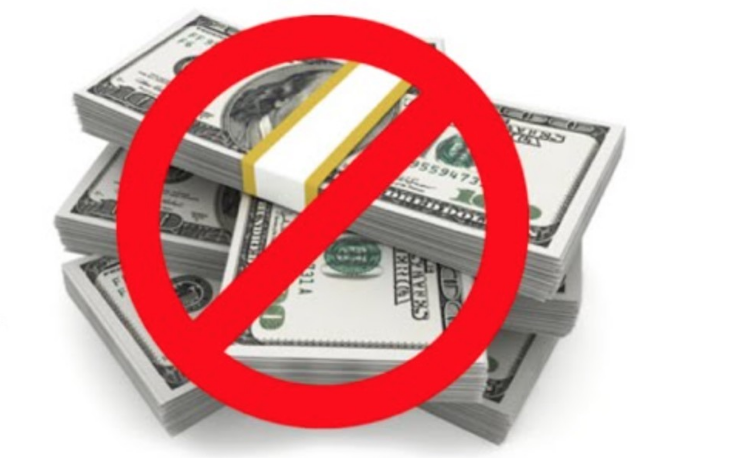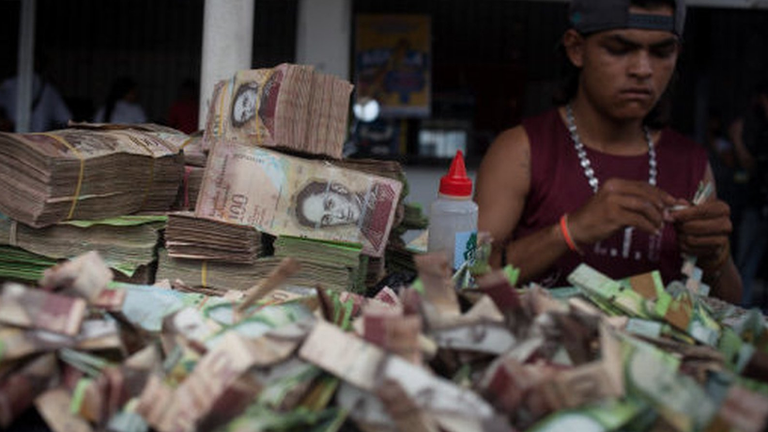Cash is difficult to handle, transmits disease, can be misplaced, and is out of the issuer's control. Depending on who you are, some of these characteristics of cash are a positive, while others are a negative.
As banks continue to lower cash withdrawal limits, the push from above towards a cashless society becomes more evident. Apparently, the powers that be would prefer all of our transactions to be digital, and controlled by either a benevolent dictatorship or oppressive tyrant, depending on your perspective.
Whether you are for or against cash, we cannot deny that it's fated for non-stop inflation, which will only get worse as our debts expand exponentially. In this article, we discuss the inevitable challenges involved with transitioning society from physical cash to digital payments.

If you're from the (rapidly devolving) "developed world", where virtually all citizens have bank accounts, and swipe their debit or credit cards to make nearly every one of their purchases, this cashless society could actually seem plausible to you.
However, if you come down here to Latin America, in countries like Mexico and El Salvador, you will notice that a much larger portion of the economy still operates on cash, especially among the ubiquitous outdoor markets and street vendors. Cashiers here aren't at all agitated when you pull a $20 bill from your wallet, as opposed to the sighs you'll hear from workers in North America.
Transitioning the United States into a cashless society would be difficult enough, but imagine corralling everyone in Latin America into the same system? Psychologically, cash still feels like real money, and convincing people to leave it behind will not be easy.
In fact, the population will probably only abandon cash if a catastrophic system failure forced them to.
Smartphones Make It Possible
The interesting thing is that, while a large portion of the population in developing countries don't have bank accounts, they do have smartphones. These devices allow people, especially the younger generation, to leapfrog the traditional financial system and move directly into a digital currency standard.
Here in El Salvador, the government took this into consideration when they offered $30 of free (lightning) Bitcoin to every citizen who downloaded and registered the Chivo app. While this did cause a temporary flurry of Bitcoin activity at the end of 2021, usage petered out as the price plummeted throughout 2022. Dollar preference remained strong worldwide, especially relative to other national currencies.
We have already seen the results of hyperinflation in places like Zimbabwe, Argentina, and Venezuela. In all of these situations, cryptocurrencies did manage to gain some traction, thanks to their limited supply and censorship-resistance, but the majority flocked to the universally accepted dollar (often in the form of stablecoins).

The question is, given irresponsible fiscal and monetary policies, for how much longer can we rely on the all-powerful USD to retain value?
Inflation Will Be The Trigger
Even after the unprecedented inflation we experienced in recent years, many westerners still believe that hyperinflation could never happen to the dollar, the euro, or the yen.
Perhaps we haven't been paying enough attention to the exponential debt trap we currently find ourselves in, or our government subtly nudging us towards Central Bank Digital Currencies (CBDCs).
As the US government continues to spend like a drunken sailor, backdoor bailouts persist, and the economy falters, the inflation fire will only get harder to put out. This means prices will continue to rise in the coming years, and we can expect to see social unrest from the people who rely on cash as a means to operate their businesses.
Of course the government will have a solution. Some kind of transition into CBDCs, the new fuel of a centrally controlled economy. This will likely involve a government-sanctioned smartphone app, and integration with existing credit and debit cards until the transition can be completed.
Meanwhile, the free market cryptocurrency space will continue its rapid development, and offer stiff competition to any government-backed digital currencies. In any case, a smartphone-like device will be required to participate in the new digital economy.

Major Challenges
The problem with transitioning the population from physical cash to a mandatory digital payment system is that not everyone is technically ready for it, especially the elderly population. One of the main reasons many Salvadorans rejected the Chivo wallet was due to all of the technical issues they encountered throughout registration and payment process. This is why education is so important.
So what happens when inflation is unleashed again, and the cash that powers a huge portion of these economies starts to lose value rapidly? We'll likely see a large cohort of the population corralled into CBDCs, with others voluntarily adopting cryptocurrencies, as they offer more freedom and value preservation.
It's not out of the realm of possibility that private crypto banks could issue paper notes backed by cryptocurrencies for those citizens who still aren't ready to go digital. Even though this goes against crypto's principles of "not your keys, not your crypto", these transitional steps will likely be necessary as we move towards a purely digital payment system.
Follow Me
If you found this article interesting, feel free to check out my other posts on finance and crypto here on the censorship-resistant HIVE blockchain, and also follow me on InLeo for more frequent updates.
Until next time...
Resources
Cash ban image [1]
Hyperinflating cash in Venezuela [2]
Cryptos image [3]
I am from Venezuela and we have experienced extreme inflation, but then faced another problem, cash in dollars which was the only thing people relied on. The bills get lost, some get torn and people are very meticulous when looking at the bills, if they have any defects or are very worn out the stores do not accept them.
Having the stablecoin is much better, now Venezuela has $ accounts but the commissions are very high so cryptocurrencies are the best option although people still do not adapt to them.
I would like to take the opportunity to invite you to read a post about Inleo delegations and how to generate passive income.
Here is the post:
